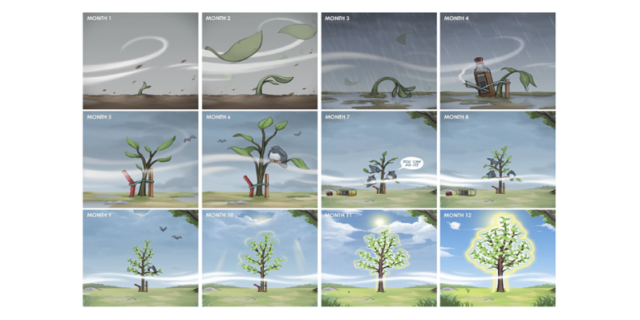
By
Kathryn Chachula, Debra Dusome, and Nadine Smith
September 2023
Print Version
What you need to know
According to the Transition Shock theory, new Registered Nurses (RNs) face formidable obstacles in their first year. However, little is known about the experience of new Registered Psychiatric Nurses (RPNs). Using constructivist grounded theory, participants were found to be in a process of growing their personal and professional self with three themes identified: being thrown into the fire, adjusting and adapting to the team environment, and nurturing self and others.
Words of encouragement and mentorship are key to new graduates growing a professional identity. A supportive atmosphere is critical to the development of new graduates within their first year of practice.
Why this research is important
Post-COVID, transformational change is needed to support nurses and new graduates in their work to promote the health and wellness of clients, families, and diverse communities within Canada’s public health care system. Leadership and investments that strengthen the nursing workforce to prevent nurses’ and psychiatric nurses’ intent-to-leave the profession and loss from the workforce due to early retirement are essential.
How the research was conducted
The researchers followed five new RNs and eight new RPNs working in the Prairie Mountain Health and Winnipeg Regional Health Authority from the fall of 2020 to the spring of 2022. Participants relayed positive and negative experiences of their first year of transition-to-practice.
A total of 38 interview and focus group data were collected. Three arts-based workshops were planned at four, eight, and 12 months starting in 2020 through the spring of 2021, with subsequent member checks and follow-ups in the spring of 2022. Arts-based activities included figurine object exercises, collaging, reflective and thematic writing, as well as group concept mapping within the study. Participants self-selected the major themes with guided facilitation by the researchers.
What the researchers found
Participants were found to be in a process of growing their personal and professional self. The first 12 months of their practice can be seen in the figure, depicting a sapling growing into a tree. During the first four months, the new nurses were facing the unexpected and found themselves seeking welcome and belonging in a health care system under tremendous strain. Many were self-critical and not coping effectively using marijuana and alcohol; they withdrew from friends and family and felt burned out.
Months 5-8 were characterized by trying to adapt and adjust to the health care team environment. At times, it was a single voice that said, “you can do it” that gave strength, meaning, validation, and support for continued growth.
By months 9-12, the participants continued to grow confidence in themselves, their nursing knowledge, and their skills. The new nurses felt rewarded for their work with added confidence, authenticity, and the ability to mentor others in their practice. For new graduates who changed positions in their first year, they found the process took them approximately 18 months to reach the point in their development of demonstrating confidence in themselves and being able to mentor others.
How this research can be used
Keys to successful transition noted by the participants included the following:
- mentoring from more experienced nurses
- quarterly check-ins by unit managers and program educators
- being listened to, feeling heard, and being given time to grow and learn
- involvement in team activities inside and outside of work
- being provided with a thorough orientation to the workplace environment
- pathways to resolving racism, microaggressions, sexism, bullying, and unwarranted criticism in the workplace
- adequate support following violent patient incidents and knowing their rights in the workplace
- being placed in charge or in leadership positions after eight months of gaining experience
- developing work-life balance
About the Researchers
Keywords
- arts-based research
- constructivist grounded theory
- newly graduated nurses and psychiatric nurses
- professional identity formation
- transition-to-practice
Publications Based on the Research
Chachula, K., Dusome, D., & Smith, N. (2023). New registered nurse and registered psychiatric nurse graduates' transition-to-practice amid the pandemic: An art-based grounded theory study. Nurse Education Today. Advance online publication. https://doi.org/10.1016/j.nedt.2023.105946
Editor: Christiane Ramsey
Read more BU Research
Research at Brandon University follows comprehensive policies designed to safeguard ethics, to ensure academic integrity, to protect human and animal welfare and to prevent conflicts of interest.



